
Of the 70 Writers Nominated for the 1967 Nobel, Meet the 5 Women
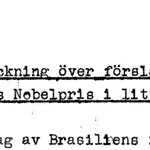 You can find the PDF of the nominations list online. (Warning: It’s in Swedish. Föreslag, I assume, must mean “nominated.”)
According to Orthofer, first-time nominees for the 1967 prize “included future winners Saul Bellow and Claude Simon, as well as Jorge Amado, Jean Genet, György Lukács — and the (as best I can tell) last surviving nominee, Hans Magnus Enzensberger.”
He amended that later, noting that Lina Kostenko and Ivan Drach are both still alive.
The 70-strong list of writers nominated for ’67, Orthofer writes, was eventually whittled down to three. These were Asturias (the eventual winner), Graham Greene, and Jorge Luis Borges.
Also notable is that — out of the 70 writers on the list — just five seem to have been women. Svetlana Alexievich, who won the prize in 2015, was just the fourteenth woman to win the prize since it was first given in 1901. The prize has largely celebrated Europeans and men, and male Europeans, so it’s unsurprising that the nominations list is weighted toward men.
But the women who made it:
You can find the PDF of the nominations list online. (Warning: It’s in Swedish. Föreslag, I assume, must mean “nominated.”)
According to Orthofer, first-time nominees for the 1967 prize “included future winners Saul Bellow and Claude Simon, as well as Jorge Amado, Jean Genet, György Lukács — and the (as best I can tell) last surviving nominee, Hans Magnus Enzensberger.”
He amended that later, noting that Lina Kostenko and Ivan Drach are both still alive.
The 70-strong list of writers nominated for ’67, Orthofer writes, was eventually whittled down to three. These were Asturias (the eventual winner), Graham Greene, and Jorge Luis Borges.
Also notable is that — out of the 70 writers on the list — just five seem to have been women. Svetlana Alexievich, who won the prize in 2015, was just the fourteenth woman to win the prize since it was first given in 1901. The prize has largely celebrated Europeans and men, and male Europeans, so it’s unsurprising that the nominations list is weighted toward men.
But the women who made it:
Marie Luise Kaschnitz
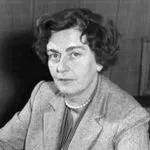 Kaschnitz (1901-1974) was a German short story writer, novelist, essayist, and poet. According to Britannica, “she expressed an anguished, unflinching vision of the modern world that was nevertheless tempered by guarded feelings of optimism and hope. Such later collections of poems as Dein Schweigen, meine Stimme (1962; “Your Silence, My Voice”) reflect the sorrow and loneliness Kaschnitz experienced upon the death of her husband, and her subsequent search for meaning and stability in her life.
“Kaschnitz also wrote autobiographical novels, including Wohin denn ich (1963; “Whither Then I”), and the notable short-story collection Lange Schatten (1960; “Long Shadows”). She also wrote essays as well as radio and stage plays.”
Read two of her poems, “Hiroshima” and “Not Brave,” translated by Eavan Boland.
Kaschnitz (1901-1974) was a German short story writer, novelist, essayist, and poet. According to Britannica, “she expressed an anguished, unflinching vision of the modern world that was nevertheless tempered by guarded feelings of optimism and hope. Such later collections of poems as Dein Schweigen, meine Stimme (1962; “Your Silence, My Voice”) reflect the sorrow and loneliness Kaschnitz experienced upon the death of her husband, and her subsequent search for meaning and stability in her life.
“Kaschnitz also wrote autobiographical novels, including Wohin denn ich (1963; “Whither Then I”), and the notable short-story collection Lange Schatten (1960; “Long Shadows”). She also wrote essays as well as radio and stage plays.”
Read two of her poems, “Hiroshima” and “Not Brave,” translated by Eavan Boland.
Katherine Anne Porter
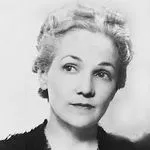 Porter (1890-1980) won the Pulitzer in 1966 for her Collected Stories.
There is a lovely interview with her in The Paris Review, in which she says, “I’ve never made a career of anything, you know, not even of writing. I started out with nothing in the world but a kind of passion, a driving desire. I don’t know where it came from, and I don’t know why—or why I have been so stubborn about it that nothing could deflect me.”
Read “He” by Porter online, or get her Collected Stories at your local bookshop or library.
Porter (1890-1980) won the Pulitzer in 1966 for her Collected Stories.
There is a lovely interview with her in The Paris Review, in which she says, “I’ve never made a career of anything, you know, not even of writing. I started out with nothing in the world but a kind of passion, a driving desire. I don’t know where it came from, and I don’t know why—or why I have been so stubborn about it that nothing could deflect me.”
Read “He” by Porter online, or get her Collected Stories at your local bookshop or library.
Anna Seghers
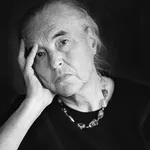 Seghers (1900-1983), born Netty Reiling, was a German Jewish writer best-known for her anti-fascist novels.
Over at Love German Books, Katy Derbishire wrote in 2010:
Seghers (1900-1983), born Netty Reiling, was a German Jewish writer best-known for her anti-fascist novels.
Over at Love German Books, Katy Derbishire wrote in 2010:
Now if we’re going to go digging up dead German writers, Anna Seghers really ought to be one of them. She had a heck of a lot to say about the rise of fascism and resistance against it, complicity in it, and so on. Die Toten bleiben jung (1949), for instance, which the East German authorities didn’t really want her to publish – while very much of its time in the sense that the communists are all perfect – is a fascinating fictional analysis that spans various classes from 1918 to 1945. Great structure too. Or someone could put together a lovely anthology of her very good short stories.
Translated short stories by a dead German communist woman – bound to be a bestseller. Her Transit has since appeared, translated by Margot Bettauer Dembo, and her Crossing: A Love Story appeared in 2016, translated by Douglas Irving, although I don’t see any short stories.Judith Wright
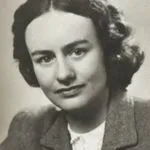 Wright (1915-2000) was best-known as a poet. But, according to the Judith Wright Centre, she also “wrote children’s stories, books of criticism, and ‘Generations Of Men’, a novel about her grandparents who were early settlers in Queensland’s Dawson Valley.”
Of her work, the University of Melbourne’s Kevin Brophy writes:
Wright (1915-2000) was best-known as a poet. But, according to the Judith Wright Centre, she also “wrote children’s stories, books of criticism, and ‘Generations Of Men’, a novel about her grandparents who were early settlers in Queensland’s Dawson Valley.”
Of her work, the University of Melbourne’s Kevin Brophy writes:
Everyone loves Judith Wright. Her poetry was consistently brilliant and stunningly lyrical. She opened Australian eyes in the 1940s to the possibilities of modernism in poetry, she opened our eyes to the engagement poetry can have with philosophical ideas, with history, and with the guilt, racism, pride and violence in that history, she opened our eyes to our landscapes, our flora and fauna.
You can read several of her poems at the website “All Poetry.”Lina Kostenko
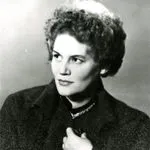 Kestenko (1930- ) is one of the few on the list who is still alive, and thus could still potentially win the Nobel. Best-known as a poet, she was the recipient of the 1987 Shevschenko Award.
There seems to be no collection of the Ukranian author’s work in translation, although there are individual poems, such as “A Love Poem,” translated by Slava Galperin and Alex Zeyliger, and “Beware the Censor in Yourself,” translated by Artyom Timeyev.
An earlier version of this post had only spotted four of the women on the list. Thanks, as ever, to M.A. Orthofer for the save.
Kestenko (1930- ) is one of the few on the list who is still alive, and thus could still potentially win the Nobel. Best-known as a poet, she was the recipient of the 1987 Shevschenko Award.
There seems to be no collection of the Ukranian author’s work in translation, although there are individual poems, such as “A Love Poem,” translated by Slava Galperin and Alex Zeyliger, and “Beware the Censor in Yourself,” translated by Artyom Timeyev.
An earlier version of this post had only spotted four of the women on the list. Thanks, as ever, to M.A. Orthofer for the save.










